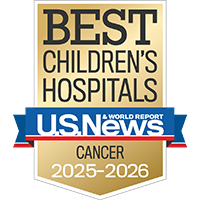Saving future lives
500+ UCSF investigators are researching cures for hundreds of childhood and adult diseases.


Lymphoma is a cancer that develops in the lymphatic system. Part of immune function, the lymphatic system plays an important role in your body's response to infection and disease.
The lymphatic system consists of:
Because the lymphatic system is extensive, lymphoma can start in a variety of locations and spread to almost any organ or tissue.

Ranked among the nation's best in 11 specialties

Top 10 in the nation and best in Northern California for cancer care

Accredited by the Foundation for Accreditation of Cellular Therapy
There are two main types of lymphoma: Hodgkin's lymphoma and non-Hodgkin's lymphoma. The difference can be seen by looking at the cancer cells under a microscope. Hodgkin's lymphoma is characterized by a specific type of cell called a Reed-Sternberg cell. In non-Hodgkin's lymphoma, Reed-Sternberg cells aren't present.
Identifying the type helps us determine which treatment options may work best. Lymphoma treatments include radiation therapy, chemotherapy and bone marrow transplant.
This information is for educational purposes only and is not intended to replace the advice of your child's doctor or other health care provider. We encourage you to discuss any questions or concerns you may have with your child's provider.
Saving future lives
